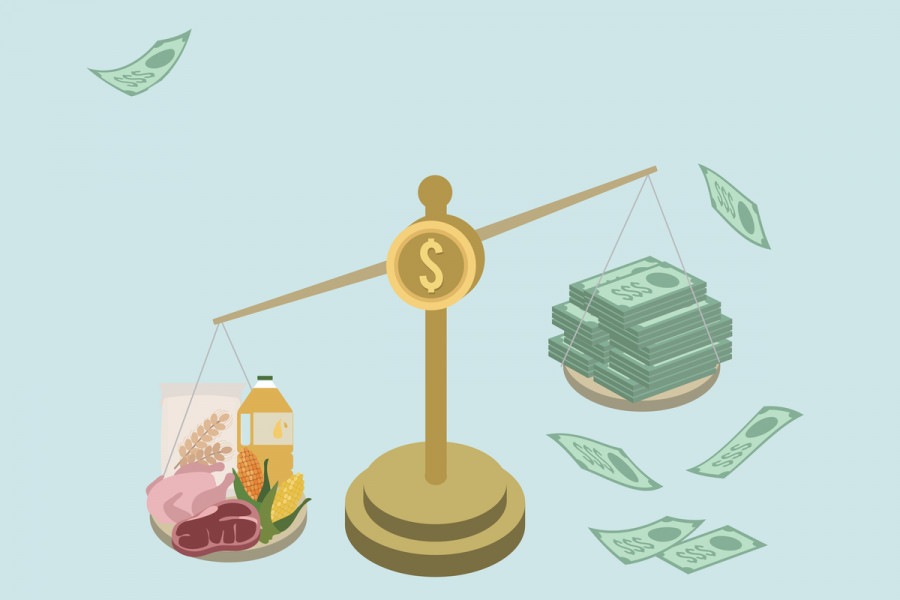Editorial
Costly festivals
The unnatural increases in prices of everything from edibles to travel tickets must be curbed.
Every year, on the eve of Dashain, Tihar and Chhath, the triumvirate of Nepal’s biggest festivals, market prices shoot up, shadowing the festive mood. This year too, the prices of essential goods such as rice, edible oil, legumes and lentils are already soaring. To make matters worse, both long-range buses and airlines hike ticket prices, making the journey home a financial burden for many. Goods prices are really not consumer-friendly. Even the supposedly low-cost goods from China are now out of reach of many families. Let us not even get started on the price of gold, which only the super-rich can now afford.
While it is natural for international trends to influence market prices, the bigger problem in Nepal are opportunistic traders and middlemen who are freely fleecing consumers in the absence of proper market supervision. Take the recent price hike in edible oil. When India, Nepal’s all-important trade partner, increased the basic import tax on crude and edible oils by 25 percent, Nepali importers seized on the opportunity to increase the price of edible oil, even when the government of Nepal had not increased its import taxes on oil. As a result, sunflower oil, which was Rs190 a litre last week, is now being sold at Rs210 a litre; mustard oil, which was going at Rs350 a litre, now costs Rs370 for the same amount. Rice prices have also increased by an average of Rs100kg (for a 25 kg bag). In the next few weeks, the prices could get steeper still.
In response, the government has started operating fair-priced shops across the country to help people tide over festive times. However, such festival-time intervention will not be enough to stop unscrupulous businesses from arbitrarily setting prices. Only if there is periodic monitoring of the market will the effort seem credible and businesses take it seriously. Moreover, according to consumer rights activists, just inspecting retail markets is not enough. To prevent unscrupulous trade, the warehouses of larger importers and traders where goods are stocked for supply must also come under regular inspections.
Then there is the matter of added travel costs. Domestic flight fares rise due to increased demand during festivals. For instance, the usual one-way airfare for Kathmandu-Dhangadhi is Rs7,900, but travellers will have to pay Rs13,300 between October 10-12 this year. Those who book tickets ahead of time get to travel on the standard fare, but those in emergencies are bound to suffer. Travel via the roads is another concern during festivals as the transport management department, which has issued directives for safe and comfortable travel, has refused to increase the number of passenger buses. This has allowed the current bus operators to overcharge passengers. Ease of travel is a basic right and it cannot be solely left to the logic of supply and demand, especially during the festive times when all people long to be with their loved ones.
Several studies, including one by the National Consumer Forum, a consumer rights body, reckon Nepal’s market is comparably more expensive than markets of similar economies. Festive time or not, only year-round market monitoring, intervention and penalties for scrupulous operators can ease the growing financial burden on people.




 13.12°C Kathmandu
13.12°C Kathmandu














